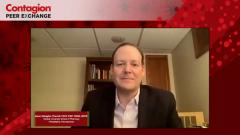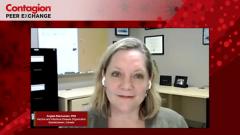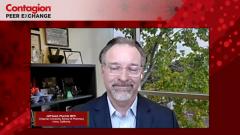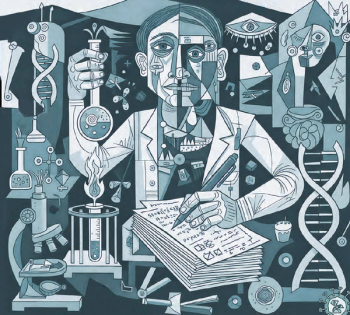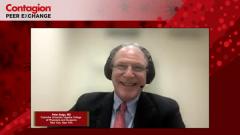
COVID-19 Booster Shot Eligibility
Experts discuss who is eligible for COVID-19 booster shots and the misinformation around COVID-19 vaccinations.
Episodes in this series

Peter Salgo, MD: Something is buried in your answer that I don’t want to get lost. Early on, people said this is a brand new experimental vaccine, nobody’s used it before, it has never been tried, when in fact as you point out, it’s not that new. It has been developed, and there are diseases for which this has been implemented. That is important. Nobody is talking about that. Why is that?
Donald Alcendor, PhD: That’s right. It’s part of the misinformation cascade that is going on. Again, you won’t know this unless you’re most likely in medical or biomedical research.
Peter Salgo, MD: Jason, you wanted to say something?
Jason Gallagher, PharmD, FCCP, FIDP, FIDSA, BCPS: I was going to say I do think that’s a big part of it, this bevy of misinformation. However, it’s not just that to me. The part that’s facing forward to the public was the fast part. To get it from clinical trials to authorization in a fairly short time is incredible. They didn’t see all the development that went on over those years. However, the only part people have seen is that last part: disease detected, being described, and then a vaccine developed in the space of roughly a year by the time it got to people. What Donald was pointing out and what you’re highlighting is important, that we take that time to describe that history. People don’t know it, and it doesn’t make sense to them. When I describe it, I’m talking about the fact that it’s easy to demonstrate efficacy when you work, when you’re in the middle of a pandemic giving you subjects who develop infection all the time, versus if it’s something that’s less common.
Peter Salgo, MD: Let’s do a couple of more pieces of housekeeping. Jeff, who would be the prime people who need the booster?
Jeff Goad, PharmD, MPH: Remember, we started vaccinating those in nursing homes a lot earlier. Certainly, our older patients who are in congregate living, nursing homes, are the first ones we need to give the booster. We also know because they‘re older, they don’t mount as robust of an immune response. Those who originally got the vaccine earlier need to be boosted, not only for preventing transmission, but there may be also prevention of hospitalizations and severe disease that they’ll benefit from with the booster.
Peter Salgo, MD: What about people who work in high-risk settings, all of us for example? What about other people out, public facing—I’m not sure I like that phrase but that’s one that’s been in use—first responders?
Donald Alcendor, PhD: Frontline workers are very important. I think the medical health care folks must be boosted. Then of course: teachers, policemen, firemen, people who work in daycare centers, people who are taking care of children. I think this is also a group of people who need to be boosted as well.
Jeff Goad, PharmD, MPH: As we talk about the different populations, those frontline workers are really not necessarily the ones who are going to end up in the hospital, however they are the front line, in the public, therefore they’re part of the transmission chain.
Peter Salgo, MD: I want to thank you at home for watching this Peer Exchange discussion. If you enjoyed the content, subscribe to our e-newsletters to receive upcoming Peer Exchanges and other great content right in your inbox.
Transcript edited for clarity.
Newsletter
Stay ahead of emerging infectious disease threats with expert insights and breaking research. Subscribe now to get updates delivered straight to your inbox.

